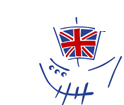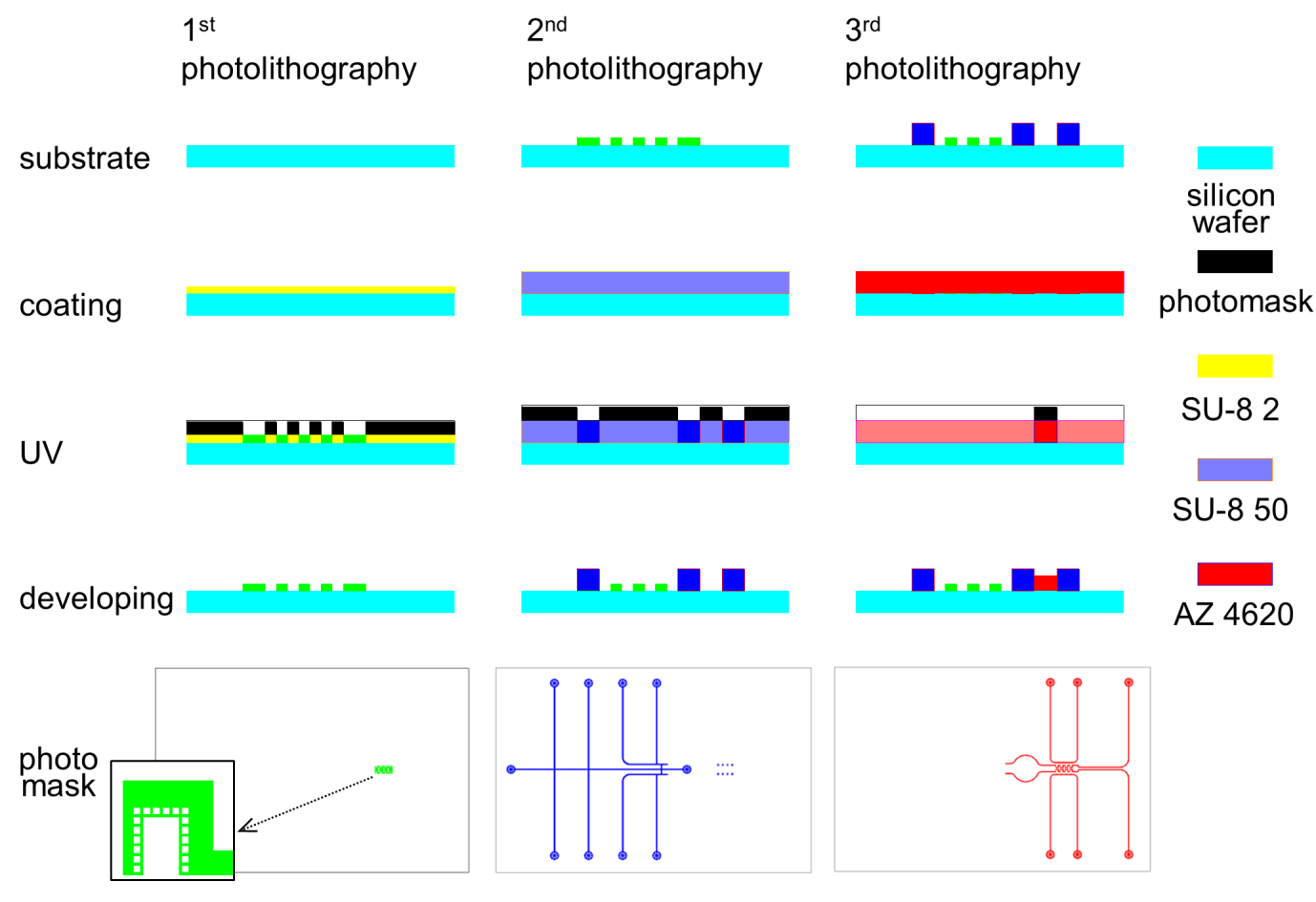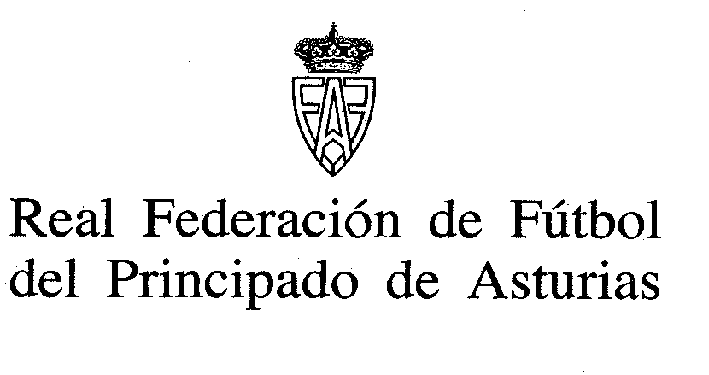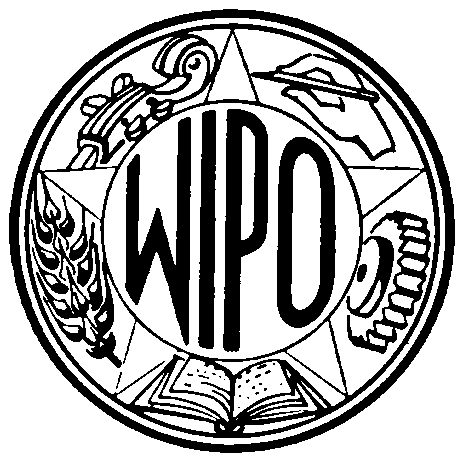SCCR1910 PAGE 4 WIPO E SCCR1910 ORIGINAL ENGLISH DATE
SCCR1910 PAGE 4 WIPO E SCCR1910 ORIGINAL ENGLISH DATESCCR1910 PÁGINA 5 OMPI S SCCR1910 ORIGINAL INGLÉS FECHA
SCCR/19/
SCCR/19/10
page
|
WIPO |
|
E |
|
WORLD INTELLECTUAL PROPERTY ORGANIZATION |
||
|
GENEVA |
||
STANDING
COMMITTEE ON COPYRIGHT
AND RELATED RIGHTS
Nineteenth Session
Geneva, December 14 to 18, 2009
STAKEHOLDERS’ PLATFORM: SECOND INTERIM REPORT
INTRODUCTION
1 During the 17th session of the Standing Committee on Copyright and Related Rights (SCCR) held in November 2008, the Committee acknowledged the special needs of visually impaired persons (VIP) and stressed the importance of dealing, without delay and with appropriate deliberation, with those needs of the blind, visually impaired, and other reading-disabled persons, including discussions at the national and international level on possible ways and means of facilitating and enhancing access to protected works, against the background of an analysis of limitations and exceptions. This should also include the establishment of a stakeholders’ platform at the World Intellectual Property Organization (WIPO), in order to facilitate arrangements to secure access for disabled persons to protected works.
2 Based on the above mandate, the WIPO Secretariat invited various major stakeholders representing copyright rightholders and VIP interests to take part in two meetings with the aim of exploring their concrete needs, concerns, and suggested approaches in order to achieve the goal of facilitating access to works in alternative formats for people with disabilities. The first meeting of the abovementioned platform took place in Geneva, on January 19, 2009, and the second meeting took place in London, on April 20, 2009.
3 An Interim Report of the above meetings was presented during the 18th session of the SCCR (document SCCR/18/4) to provide an update of the work carried out by the platform. The Committee welcomed that Report and encouraged the Secretariat to continue the work of the platform and report on its activities during the 19th session of the SCCR. Moreover, the Committee requested that the WIPO Secretariat ensure, and make available funding to support, the effective participation of stakeholders from developing and least-developed countries. The Secretariat was also requested to make its best efforts to organize a meeting of the platform in a developing country.
4 In light of the above, WIPO organized the third meeting of the Stakeholders’ Platform on November 3, 2009 in Alexandria, Egypt, and financed the participation of a number of stakeholders from developing countries. The meeting was organized in cooperation with the Government of Egypt and the Library of Alexandria.
5 This Second Interim Report describes the outcome of the above meeting and identifies further steps needed to pursue the mandated objectives. The Secretariat seeks the approval of the Member States to proceed with the actions proposed, and to submit a further report to the SCCR session to be held in 2010.
THIRD MEETING
6 The third meeting of the stakeholders’ platform took place on November 3, 2009, at the Library of Alexandria, in Alexandria, Egypt. The list of participants is included in the Annex to this report. The focus of the meeting was to take stock of the work carried out by the two subgroups of the platform, respectively the trusted intermediaries’ subgroup and the technology subgroup.
Trusted Intermediaries
7 Two proposals were presented by the trusted intermediaries’ subgroup, namely the Trusted Intermediary (TI) guidelines and a pilot outline.
8 The TI guidelines consist of high level principles agreed by the representatives of print-disabled persons and rightholders with a threefold aim, namely: i) building mutual confidence among all stakeholders, ii) significantly increasing the number of published works available to print-disabled people, obtained via mainstream channels, in a format that suits their individual requirements, and iii) avoiding unnecessary duplication at national or international level in the production of works in accessible formats.
9 The TI guidelines were presented to the members of the platform on the understanding that they were not intended to be legally binding. It was also specified that nothing in the guidelines would change national or international law at any time.
10 As noted in the first Interim Report of the Platform (document SCCR/18/4), the parties have agreed in the first instance to work towards TI Guidelines for the business-to-business (B2B) environment (i.e. delivery between two TIs in the same or different countries).
11 The guidelines comprise various aspects, namely:
– Lawful access to the works
– Contractual relationships
– Remuneration, including zero remuneration as a default
– Formats
– Supply of digital master files
– Delivery of content to qualifying end users
– Approved institution
– Beneficiaries
– Copyright information, and
– Notification requirements to rightholders and records
12 The TI pilot outline expresses the criteria to be used for real-life testing of the TI guidelines. The main objectives of the pilot are: a) to test whether the TI Guidelines address all relevant concerns by stakeholders; b) to test the TI Guidelines as a basis for the development of an international TI network that can serve both communities; and c) to gain mutual confidence between stakeholders, while at the same time achieving some practical positive improvements on the ground.
13 The pilot would involve a limited number of TIs in developing and developed countries, potentially scalable, during the pilot period of 24 months. A pre-project phase would take place from September to December 2009, followed by finalization of project management and selection of the organizations between January and March 2010. The pilot itself would commence on April 1, 2010.
14 The representatives of print-disabled persons and of rightholders agreed to study various funding alternatives, to make their best efforts to ensure sufficient funding for the test and to identify suitable pilot partners, based on support from local organizations representing print-disabled persons and rightholders.
Technology
15 The technology subgroup presented a proposal for an enabling technologies framework. This proposal consists of a three-year project to be jointly run by two international standards bodies, namely the DAISY (Digital Accessible Information System) Consortium1 and EDItEUR2.
16 The goal of the enabling technologies component of the project is to evolve mainstream publishing processes capable of delivering fully-accessible digital publications. If engineered properly, publishing processes should yield digital products that can be used effectively by every member of society. Some value may be needed to support particular user groups, for example description of graphical elements for visually-impaired persons. However, the fundamental usability of digital publications should meet the needs of both mainstream users and persons with disabilities equally; the target is to allow the same product to be used by everybody.
17 The focus of the work on enabling technologies would be to develop best practice guidelines for publishers to follow in their production processes, and where appropriate to integrate existing standards (e.g. ONIX, EPUB and DAISY) into mainstream publishing in ways that enhance these best practices. The output would be designed for use by publishers in all parts of the world.
18 This component of the project would be structured in five work packages, namely:
– Project management
– Developing best practices in publishing production departments
– Extending ONIX to convey accessibility information and integrating ONIX with DAISY format
– Extending the DAISY pipeline to support publishers’ requirements and conversion house requirements, and
– Communication, training, and technical support.
19 The total estimated cost for the completion of the enabling technologies component of the project would be 110,000 euros per year for three years, and work would commence during the first quarter of 2010.
20 Subject to the consideration of Member States at the SCCR, the next meeting of the stakeholders’ platform would take place during the first quarter of 2010.
21 The Standing Committee is invited to note the contents of this document, including that the Secretariat will submit a further report to the SCCR.
[Annex follows]
ANNEX
THIRD MEETING OF THE STAKEHOLDERS’ PLATFORM
Alexandria (Egypt), November 3, 2009
The Library of Alexandria
LIST OF PARTICIPANTS
I. STAKEHOLDERS
Jens BAMMEL, Secretary General, International Publishers Association (IPA)
Hala ESSALMAWI, IPR Officer, the Library of Alexandria (Bibliotheca Alexandrina), Alexandria, Egypt
Nicolaas FAASEN, Uitgewersbestuurder, Taalsentrum Publishing Manager, Language Centre, Nasou Via Afrika, Cape Town, South Africa
Chris FRIEND, World Blind Union (WBU), Strategic Objective Leader Accessibility; Chair, Global Right to Read Campaign; Programme Development Advisor Sightsavers International
George KERSCHER, Secretary-General, Daisy Consortium, Recording for the Blind & Dyslexic (RFB&D)
Heba KHOLEIF, Principle Specialist, Taha Hussein Library for the Visually Impaired specialized Libraries Directorate, the Library of Alexandria (Bibliotheca Alexandrina), Alexandria, Egypt
Tarja KOSKINEN OLSSON (Ms.), International Advisor, International Federation of Reproduction Rights Organisations (IFRRO)
Pablo LECUONA, Founder and Director, Tiflolibros, Buenos Aires
Dipendra MANOCHA, Director, Regional Resource Centre, Digital Accessible Information System (DAISY) Consortium, New Delhi
Pedro MILLIET, Senior Developer & Information Architect, Dorina Nowill Foundation for the Blind, Sao Paulo, Brazil
Irene MUTHONI (Ms.), Director, Kenya National Library Service (KNLS), Nairobi
Denise NICHOLSON, International Federation of Library Associations and Institutions (IFLA) Copyright and other Legal Matters Committee, Johannesburg, South Africa
Judit RIUS SANJUAN, Advisor, WBU
Olav STOKKMO, Secretary General, IFRRO
Sohair WASTAWI, Chief Librarian, Library of Alexandria, Alexandria, Egypt
II. SELF-FINANCED MEMBER STATES – OBSERVERS ON REQUEST
Samuel BARICHELLO CONCEICAO, Coordenação-Geral de Regulação em Direitos Autorais, Ministry of Culture, Brasilia
Karim HEGAZY, Third Secretary, UN Specialised Agencies Department, Ministry of Foreign Affairs, Cairo
III. WORLD INTELLECTUAL PROPERTY ORGANIZATION
Sherif SAADALLAH, Executive Director, Department of External Relations
Swashpawan SINGH, former Ambassador of India, WIPO Director General’s Honorary Advisor on the Visually Impaired Persons (VIP) initiative
Geidy LUNG (Mrs.), Senior Legal Officer, Copyright and Related Rights Sector, Copyright Law Division
[End of Annex and of document]
Tags: sccr1910, original, english
- MUSCULOSKELTAL SAMPLE WRITEUP BELOW IS A SAMPLE WRITEUP OF
- PLANILLA DE EXTRACCIÓN DE MUESTRAS PARA IMPORTACIÓN DE PRODUCTOS
- SE N’È ACCORTO ANCHE IL BREVISSIMO COMMISSARIATO DI COSTANTINI
- BREZŽIČNO IZOBRAŽEVALNO OMREŽJE EDUROAM GIMNAZIJA NOVO MESTO OD SEPTEMBRA
- ABC PREVENTION COALITION YOUTH FOCUS GROUP QUESTIONSPAGE 6 ABC
- !DOCTYPE HTML HTML CLASSTYPEORGANISATIONPAGE LANGEN DIRLTR HEAD META NAMEGENERATOR
- LECTURE 12 GASTROINTESTINAL AGENTS CHAPTERS 41 &
- Ðïࡱáþÿ ¥áà ð¿ï Bjbjoo 4aa¥)ÿÿÿÿÿÿ·þ þ Xxxxxÿÿÿÿlll8¤àlçþôôôôô¯¯¯fhhhhhhå²w2ölx¯¯¯¯¯lxxôôûx81½½½¯rxôxôf½¯f½½æ)x90´ôÿÿÿÿðx85x87ûàªðÿÿÿÿ^´)2x970çè)ìm3^m3(´´bm3xö¯¯½¯¯�
- WOODLAND VIEW JUNIOR SCHOOL POLICY STATEMENT FOR MATHEMATICS REVIEWED
- REQUEST FOR COMPRESSED WORK SCHEDULE THE FOLLOWING CONDITIONS GOVERN
- REGULAMIN ORGANIZACYJNY KRAJOWEJ SZKOŁY SĄDOWNICTWA I PROKURATURY (TEKST JEDNOLITY)
- CUERPO DE PROFESORES DE ENSEÑANZA SECUNDARIA FASE DE PRÁCTICAS
- Ðïࡱáþÿ x97x99þÿÿÿx95¥áà Ø¿3bjbj[ê[ê 49 9 Ÿÿÿÿÿÿ·`````ÿÿÿÿttt8¬dðtx900à²r|5`5``ûj½½½â``½½½÷cÿÿÿÿ੯øõòÿÿÿÿûjû`0x90îeöîcî`c¸½55x82 & Curso Monográfico
- ALOJAMIENTO EN MADRID HOSTALES PUEDES ALOJARTE EN ALGUNO DE
- IZENEMATE ORRIAHOJA DE INSCRIPCIÓN IZENEMATE ORRIA BIDALI ENVIAR LA
- Ðïࡱáþÿ ¼¾þÿÿÿº»¥á[x80 пêbjbj¬ú¬ú Hpîx90îx90¹0ÿÿÿÿÿÿ·ààÿÿÿÿ8olx9bä Ølëáááðð𤦦¦¦¦¦ù ¢x9bð¦ððððð¦ááï»ìììðáá¤ìð¤ìììáÿÿÿÿàâbnx83äëð ìx90ñ0 Ìkp|kììx80klð�
- CAPITAL ASSETS POLICY AND PROCEDURES [NOTE THIS DOCUMENT IS
- MIEJSCE NA PIECZĄTKĘ MIEJSCOWOŚĆ DATA ADRESAT SĄD REJONOWY W
- BASES PER LA III FIRA D’ARTESANIA DE LA FUSTA
- BUSINESS CONTINUITY TABLETOP EXERCISE TEMPLATE BASIC SCENARIO THURSDAY NORMAL
- LISTA DE CONTROL DE SÍNTOMAS PARA LA ESCALA DE
- PRESS RELEASE NEW GE DIGITAL ENERGY UNINTERRUPTIBLE POWER SUPPLY
- ODRŽIVI RAZVOJ KULTURNOG TURIZMA ISTRE MRSC LIDIJA NIKOČEVIĆ SADRŽAJ
- 8 ULUSLARARASI TÜRKÇENIN EĞITIMIÖĞRETIMI KURULTAYI 0103 EKIM 2015 İSTANBUL
- JAMES BUCHANAN HENRY JAMES BUCHANAN HENRY SERVED AS PRIVATE
- 22 GENÉTICA Y MEJORAMIENTO VEGETAL Y ANIMAL – FACULTAD
- CUESTIONARIO III TEORÍA DE JUEGOS CURSO 201112
- STRONA 23 Z 23 FORMULARZ WYKONYWANIA PRAWA GŁOSU PRZEZ
- COMUNICADO DEL PAÍS ANFITRIÓN LA CUADRAGÉSIMA REUNIÓN CONSULTIVA DEL
- MIEJSCE NA ZDJĘCIE PAŃSTWOWA SZKOŁA MUZYCZNA I STOPNIA IM
CUESTIONES FUNDAMENTALES PARA EL ESTUDIO DE EL JUGADOR TEMAS
DENETLEME RAPORU BALIKESİRMERKEZ AYŞEBACI 1ETAP TOPLU KONUTLARI TOPLU YAPI
CURRICULUM VITAE MARK STALDER MD ADDRESSCONTACT INFORMATION 221 JEFFERSON
KIELCE DN 31082019R PROTOKÓŁ V RUNDY EKSTRAKLASY ŁUCZNICZEJ KOBIET
 POSSESSIVE ADJECTIVES MY YOUR HIS HER ITS OUR YOUR
POSSESSIVE ADJECTIVES MY YOUR HIS HER ITS OUR YOUR TRAFFIC MANAGEMENT PLAN SAMPLE INTRODUCTION – IMPORTANT PLEASE READ
TRAFFIC MANAGEMENT PLAN SAMPLE INTRODUCTION – IMPORTANT PLEASE READDAVID FINNIGAN BLINDDRAGONFLYCOM BLINDDRAGONFLYGMAILCOM AUTOPSY PLAY BACKWARDS IT IS
PARA ENTENDER LA VISITA DE BENEDICTO XVI A MÉXICO
 Optic 2020 two Page Summary Template (title Should be
Optic 2020 two Page Summary Template (title Should beINFORMACJA O RYNKU PRACY W WOJEWÓDZTWIE ZACHODNIOPOMORSKIM W LUTYM
 DEPTÉCNICO DITEICO 151121 PINS ROSES Nº 15 POL IND
DEPTÉCNICO DITEICO 151121 PINS ROSES Nº 15 POL INDNATURE AND SCIENCE 201210(3) HTTPWWWSCIENCEPUBNETNATURE MICROORGANISMS ASSOCIATED WITH SPOILAGE
 ARBEITSBLATT A LKOHOL NEUGIER DU TRINKST KEINEN ALKOHOL
ARBEITSBLATT A LKOHOL NEUGIER DU TRINKST KEINEN ALKOHOLKONTRAKT OM UDVIKLING OG LEVERING AF EN ITLEVERANCE TIL
 COMISION DE SELECCIÓN DE MAGISTRADOS Y ESCUELA JUDICIAL LLAMADO
COMISION DE SELECCIÓN DE MAGISTRADOS Y ESCUELA JUDICIAL LLAMADO T ÉCNICAS PARA MEJORAR LA CONCENTRACIÓN A VECES TE
T ÉCNICAS PARA MEJORAR LA CONCENTRACIÓN A VECES TE SZAKMAI PROGRAM 2015 KÉSZÍTETTE SZŐKE – SZABÓ MÓNIKA FŐIGAZGATÓ
SZAKMAI PROGRAM 2015 KÉSZÍTETTE SZŐKE – SZABÓ MÓNIKA FŐIGAZGATÓCVIČENIA 2 POUŽIŤ TEXT21DOC 1 APLIKOVAŤ ŠTÝL „NADPIS 1“
 A MICROFLUIDIC PERFUSION PLATFORM FOR CULTIVATION AND SCREENING STUDY
A MICROFLUIDIC PERFUSION PLATFORM FOR CULTIVATION AND SCREENING STUDY CIRCULAR Nº 14 – 200809 REGLAMENTACIÓN SOBRE LICENCIAS DE
CIRCULAR Nº 14 – 200809 REGLAMENTACIÓN SOBRE LICENCIAS DE
